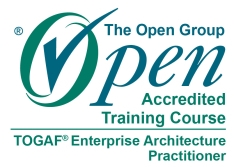ITIL® 4 Specialist: Sustainability in Digital and IT Training ITIL® SDIT Course Outline
Unit 1: Understand the Key Concepts of Sustainability
Module 1: Describe the Benefits of Sustainability for an Organisation
- Benefits of Sustainability
Module 2: Describe the Key Concepts of Sustainability
- What is Sustainability?
- Sustainability Models, Issues, and Concepts
Module 3: Explain the Purpose of the UN Sustainable Development Goals and their role in an Organisation’s Sustainability
- 17 UN Sustainable Development Goals
- Role of the UN SDGs for Sustainability Vision
Module 4: Explain the Purpose of the UN Global Compact Principles and their role in Organisations’ Sustainability
- Ten Principles of the UN Global Compact
Module 5: Describe the Triple Bottom Line Model and the Scope of Each of the Three Pillars
Module 6: Describe the Concept of Externalities
- Impact of Sustainability Initiatives
Module 7: Describe the Key Challenges of Sustainability
- Growing Human Population
- Waste Management
- Greenhouse Gas Emission
- Digital Poverty
- Digital Carbon Footprint
Module 8: Describe the Key Sustainability Solutions
- Corporate Social Responsibility
- Responsible Sourcing
- Sustainable Consumption and Production
- Circular Economy
Unit 2: Understand the Value, Benefits, Costs, and Risks of Sustainability
Module 9: Describe the Purpose of a Materiality Assessment
- Materiality Assessment
- Why Conduct a Materiality Assessment?
- How to Conduct a Materiality Assessment?
- Materiality Assessment by DEFRA
- Materiality Assessment Outputs
Module 10: Describe the Key Sources of Organisational Sustainability Risks
- Sustainability Risk Assessment
Module 11: Describe the Key Organisation-Level Stakeholder Groups and their Expectations
Module 12: Describe the Key Types and Sources of Sustainability Standards and Regulations
- Regulations and Standards
Module 13: Explain the Role of Services and the Service Economy in Sustainability
- Other Kinds of Sustainable Business Model
- Approaches Supporting Sustainable Business Models
Module 14: Explain the Recommendations for Sustainability Return on Investment (ROI)/Value on Investment
- Return on Investment in Sustainability
Unit 3: How Digital and Information Technology Support Sustainability
Module 15: Explain the Role of Digital Technology in Sustainability
- Role of Technology in Sustainability
- Digital Transformation for Sustainability
- Sustainable IT
Module 16: Describe How Digital Technology Impacts Sustainability
Unit 4: Know How to Plan Sustainability for an Organisation
Module 17: Explain the Role of Sustainability in an Organisation’s Vision
- Business, Digital, and Sustainability Vision
Module 18: Describe the Key Due Diligence Considerations for Sustainability
Module 19: Explain the Key Concerns of Achieving Sustainability in a Volatile, Uncertain, and Complex Environment
- Principles-Based Approach Vs Procedures-Based Approach vs Model-Based Approach
- Using Cynefin and Sense-Making to Address Complexity
Module 20: Describe the Three Dimensions (Aspects) of Strategic Planning
- Sustainability Business Model
- Evolution of Sustainability Planning
- Sustainable Products and Services
- Designing Sustainable Products and Services
- Organisational Ecosystem
Module 21: Describe the Key Elements of an Organisational Sustainability Strategy
- Strategies for Sustainability
Module 22: Describe the Key Elements of Sustainability Culture
Module 23: Know How to Address Sustainability in an Organisation’s Vision
- Defining the Vision
- Triple Bottom Line for Vision
Unit 5: How Organisational Sustainability is Assessed, Maintained, and Improved
Module 24: Describe the Key Concepts of Measurement and Reporting
- Metrics and KPIs
- Common Sustainability Metrics
Module 25: Explain How the Following Support Sustainability
- Innovations
- Communication and Collaboration
- Governance and Audit
Module 26: Explain How the Following ITIL Practices Support Sustainability
- Organisational Change Management
- Strategy Management
- Software Development and Management
- Supplier Management
 To help and support our clients we are providing a limited number of 250 daily discount codes. Hurry, first come, first served!
To help and support our clients we are providing a limited number of 250 daily discount codes. Hurry, first come, first served!












 Top 75+ ITIL Interview Questions and Answers You Must Prepare
Top 75+ ITIL Interview Questions and Answers You Must Prepare ITIL Problem Management Roles and Responsibilities
ITIL Problem Management Roles and Responsibilities ITIL Change Management: A Comprehensive Guide
ITIL Change Management: A Comprehensive Guide ITIL Incident Management: A Comprehensive Guide
ITIL Incident Management: A Comprehensive Guide ITIL Service Management: A Complete Guide
ITIL Service Management: A Complete Guide ITIL Capacity Management: All You Need to Know
ITIL Capacity Management: All You Need to Know 5 Stages of ITIL Service Lifecycle: A Detailed Guide
5 Stages of ITIL Service Lifecycle: A Detailed Guide What is ITIL Project Management?
What is ITIL Project Management?





















 If you wish to make any changes to your course, please
If you wish to make any changes to your course, please


